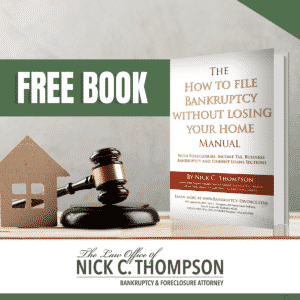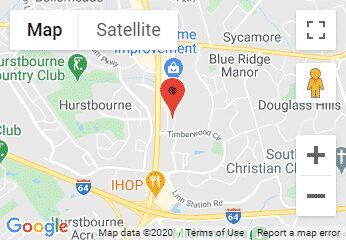There is no statute of limitations for government student loans. Federal Student loans are exempt from the state statute of limitations because of Section 484A(a) of the Higher Education Action and 20 U.S.C. § 1091a(a). However, Private student loans are subject to the statute of limitations and all the same defenses that any other contract does. We often help debtors plan a bankruptcy to eliminate student loans in our Louisville office. Until 2005 total elimination of the student loan was possible. But, since 2005 private student loans are no longer dischargeable.
In 2020, reports show that the U.S. student loan debt is at about $1.56 trillion. In fact, nearly 45 million people owe student loans. This makes student loans the second-highest category of debt next to mortgage debts. Incredibly, this is a higher level of debt than auto loans or credit cards.
The Student Loan Statute of Limitations Explained
⎆ When the income-based repayment plan is not good enough.
Often a person is able to file a Chapter 13 and make a minimum payment through the plan and wait until the statute of limitations is past to defeat private student loans. In Kentucky, the state statute of limitations is 15 years. Incredibly, I’ve met students that owe $250,000 or more in student loan debt. Although the Federal government has an income-based repayment plan for their loans there is no program to make private student loans affordable.
Unfortunately, private student loans are more likely to sue and garnish wages, attach bank accounts, and homes. If the student loan debtor has a lot of private student loans one answer is to file consecutive Chapter 13 cases to ensure that the statute of limitations runs on the debts.
In one of my cases in the Eastern District, the debtor was about age 55 and had a 20% garnishment by DOE and another 20% by Kentucky Higher Education. Both of the government student loan lenders refused to negotiate. The debtor merely filed a $100 dollar per month Chapter 13 repayment plan. Over 5 years $6,000 is repaid but about $4,000 is repaid to attorney fees and court cost leaving only $2,000 to student loans. If this is done twice in two Chapter 13 cases only $4,000 is repaid to the student loans over 10 years.
However, $100 a month was far less than what the DOE was pursuing under an income-based repayment plan. In doing this, it allows the student loan debtor to live comfortably. Then, when the debtor retires at age 65 normally, she qualifies for the disability discharge.
⎆ Be aware of collectors that want to refinance your debt.
If you refinance a private student loan to catch it up with the 15 years waiting period, the statute of limitations starts all over again. Also, when you refinance a private student loan, often, the collection agency collects a commission and the new loans are at a higher rate! However, quite often, the solution to private student loan collections is to wait until the statute of limitations runs.
Moreover, the stay from a Chapter 13 bankruptcy prevents the creditors from collection and government student loans are payable in full during the Chapter 13 plan. At the same time, unsecured debts and private student loans are paid 10% or less during the 5 years.
Do you need help managing your student loan? Contact my office right away to start the conversation. Nick C. Thompson, Attorney: 502-625-0905
⎆ Know your state’s statute of limitations for private student loans.
A private student loan is no different from a credit card debt. Consequently, all the state defenses such as the statute of limitations apply to these private student loans. In fact, the statute of limitations is the most common defense.
In some states, the statute of limitations is only three years. In most states it is five years. Remember, refinancing restarts the clock on the statute of limitations for a new loan. In Kentucky loans and contracts made before about 2014 have a 15 year statute of limitations, after 2014 it is 10 years. But when a loan is sold or can be sold it is a negotiable instrument and only has a year statute of limitations under article three of the uniform commercial code in Kentucky. We sued Cooke in Cook v Wilder and enforced this seven year limit releasing the mortgage for the homeowner. For most private student loans this 7 year limit applies.
⎆ Programs to avoid collections.
DOE has many programs that allow you to avoid collections and keep a loan out of default. Department of Education (DOE) loans do not generally go into default until they are 270 days overdue. Private loans and Perkins loans technically may be in default the day after the due date.
⎆ Avoid letting the loans go Into default.
Numerous penalties kick in when government loans go into default so you must avoid the loans going into default. If your government student loan is in default you will not obtain an FHA, VA, Kentucky Housing Corp, or federally insured home mortgage. It also affects your employment and interest rates.
⎆ You can sue collectors for FDCPA violations.
Remember you can sue collectors for FDCPA violations. That’s right—you can sue debt collectors back. However, the loan isn’t collectible by a debt collector until it is in the hands of a 3rd party collector who is handling the loan while it is in default. Government lenders have a duty to explain and help you with IBR applications, but they don’t receive financial compensation for that. So, because they get their pay for collecting late fees, so do not expect them to look out for your best interests.
You must remember that collection agencies receive their pay for collecting student loans. They often “flip” (refinance) loans into new loans to earn commissions for a new loan. Therefore, refinancing the loan makes collectors the maximum profit. The amount the student owes increases, and this prevents the statute of limitations from running for private student loans. The trusting student does not understand banking and ends up with a new loan worse than the old one.
You may ask a collector to remove you from their internal call list and avoid phone calls altogether. ICR is the version of IBR (Income-Based Repayment) for parents that co-signed for a child. There are several versions of income-based repayment IBR, PAY, PAYE, and REPAYE each has benefits and problems.
⎆ How bankruptcy pays off for student loans.
Sometimes, government student loans can pay off at the expense of private unsecured debt. This is especially true if government loans classify as “business expenses” under 1325(b) 2 or have terms longer than five years. Thankfully, the bankruptcy code allows debtors to pay long-term, non-dischargeable debts in a Chapter 13 plan at the normal monthly payment. This may save co-signers at the expense of unsecured debts.
 Resources for Student Loans
Resources for Student Loans
Current Student Loan Interest Rates
Kentucky’s 60 Year Debt Collection Statute of Limitation
Bankrupt or Discharge Student Loans
How to Stop Federal Student Loan Wage Garnishment
Do you need help managing your student loan? Contact my office right away to start the conversation. Nick C. Thompson, Attorney: 502-625-0905







